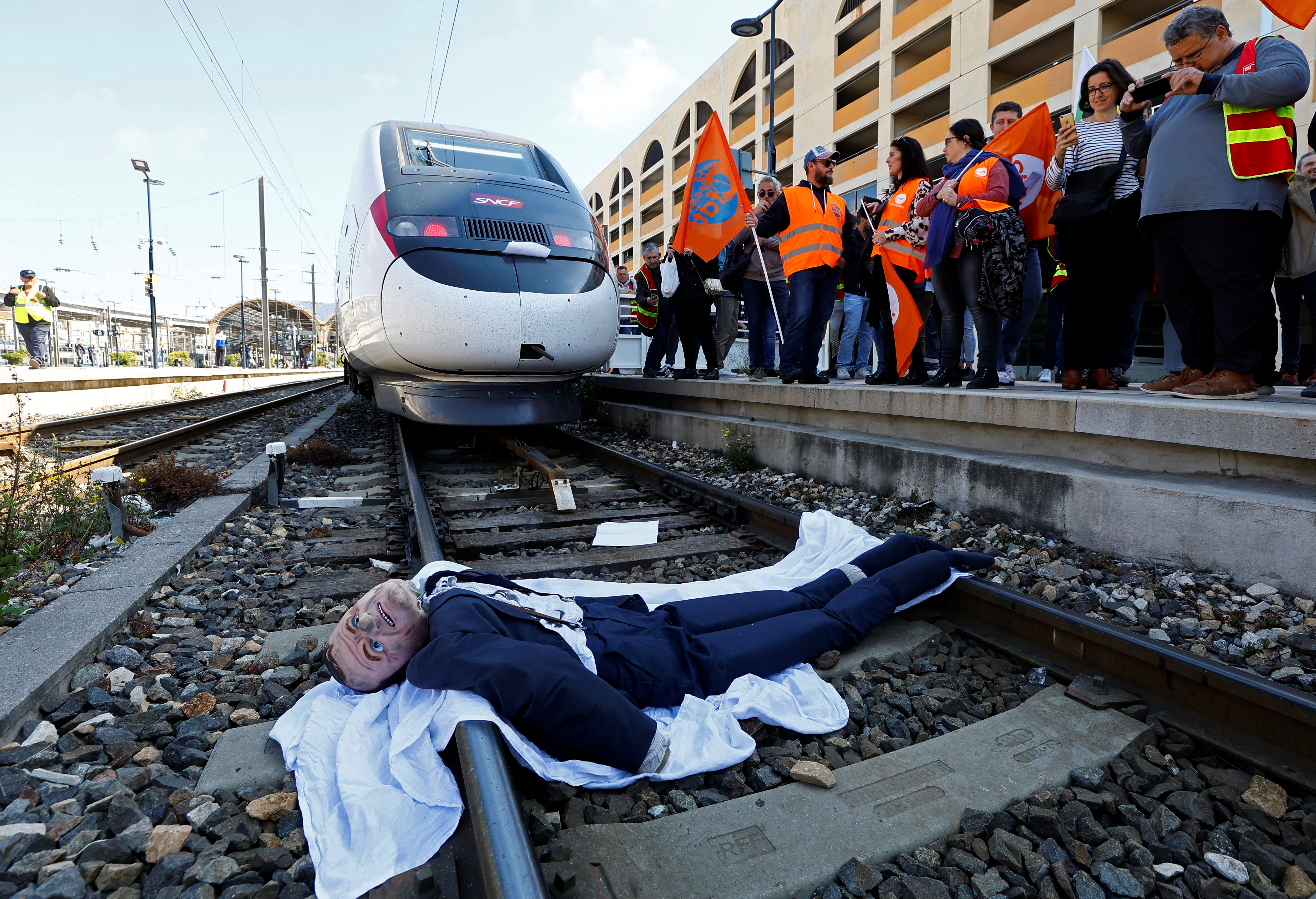Hundreds of thousands of people were set to strike and demonstrate in France on Thursday after President Emmanuel Macron vowed to push on with a deeply unpopular pension reform despite escalating anger across the country.
Protests against the legislation — which lifts the retirement age by two years to 64 — have drawn huge crowds in rallies organised by unions since January.
Labour unions said Thursday’s ninth nationwide day of action would draw huge crowds against what they described as Macron’s “scorn” and “lies.”
Macron drew an angry response from unions and opposition parties on Wednesday when he rejected their calls for him to heed growing popular anger.
“The best response we can give the president is that there are millions of people on strike and in the streets,” said Philippe Martinez, who leads the hardline CGT union.
Thursday’s strike will see train traffic seriously disrupted, with airports also affected, and teachers among many professions walking off the job, while rolling strikes continue at oil depots and amid garbage collectors.
Most protests have been peaceful, but anger has mounted since the government pushed the bill through parliament without a vote last week.
The past seven nights have seen spontaneous demonstrations in Paris and other cities with rubbish bins set ablaze and scuffles with police.
Speaking on Wednesday, Macron stuck to his guns saying the new law was necessary and would come into force later this year.
He dismissed calls to fire his prime minister, Elisabeth Borne, who has been at the forefront of the pension reform and sought to turn the page, tasking her with broadening her parliamentary majority and re-engaging with unions.
“He has put more explosives on an already well lit inferno,” Socialist Party head Olivier Faure said.
The latest wave of protests represents the most serious challenge to the president’s authority since the “Yellow Vest” revolt four years ago. Polls show a wide majority of French opposed to the pension legislation and the government’s decision to push it through parliament without a vote.







Click here to change your cookie preferences